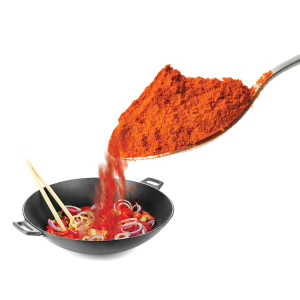A Pinch or a Pound? How Adjective Use Is Ruining Your Writing
Envision a gothic fantasy tale, with a blood-sucking horror sitting at a piano. His cold, pale hands dance over the white, glistening keys of the ancient instrument as his haggard, wet breath exits his chest in a tremendous gray cloud of cold, damp vapor.
Your skin may have crawled a little while reading that, but not because the tremendous number of descriptors painted a vivid picture in your mind. In fact, you may have even been distracted by how many words were used to say something so simple. This is an example of the danger of over-reliance on adjectives in your descriptions.
Adjectives are not masculine or feminine, and do not have plural or singular forms. This gives them a kind of beautiful simplicity compared to many other lexical items in the English language. They are easy to use and easy to understand – but they must be used appropriately! As evidenced above, misusing them can create a world of problems for your writing and may even put your readers off completely.
Get to the Point!
While you should consider adjectives your friend, even your best friends can turn sour when you place too much stress on them. Over-using adjectives as descriptors in your writing can be as unhelpful as omitting them completely. If the example in the paragraph above gave you the willies, you know what we’re talking about. Adjectives can be useful in the right circumstances, but when overused tend to add unnecessary clutter to your writing. Brevity can in some cases get your point across just as effectively as heavy description. What’s worse, you may find that the use of overused descriptors give your writing that oh-so-terrible label: cliché.
Add a Bit of Spice to Your Writing
Think of adjectives in the same way you do with cooking spices – it’s all about finding the right one for  the right situation, without going overboard. You wouldn’t add a pound of cayenne pepper to your stir fry, would you? The same goes for word choice. Good adjective use involves quality over quantity. As you’ve seen, simply adding more and more descriptors to a sentence doesn’t necessarily get your point across any better. Relying too heavily on common adjectives has the same effect on your writing as your terrible decision to replace the sugar in your cookie recipe for salt. It’s all about finding that very special equilibrium between the right spices to use and the right amounts.
the right situation, without going overboard. You wouldn’t add a pound of cayenne pepper to your stir fry, would you? The same goes for word choice. Good adjective use involves quality over quantity. As you’ve seen, simply adding more and more descriptors to a sentence doesn’t necessarily get your point across any better. Relying too heavily on common adjectives has the same effect on your writing as your terrible decision to replace the sugar in your cookie recipe for salt. It’s all about finding that very special equilibrium between the right spices to use and the right amounts.
Get Specific
Good adjective use should illustrate your point to your readers – it should help them envision your words by adding description and specifying your ideas. Using them inappropriately can give your readers the wrong idea, and in some cases can completely change the tone of your writing! Trying to read through a novel that is jam-packed full of unnecessary descriptors would be tedious and distracting. It’s important to select the appropriate adjectives that will best serve your needs; there are no one-size fits all descriptors that will work for every situation. Despite the caution you must take when utilizing them, adjectives are a necessary part of writing. Just like spices in cooking: you can’t do without them, so make sure you know how to use them right.
Greg Hill is a web content writer from the Midwest with a penchant for self-actualization and racquetball.

